Meaningful Work
When Bad Ideas Happen to Good Employees
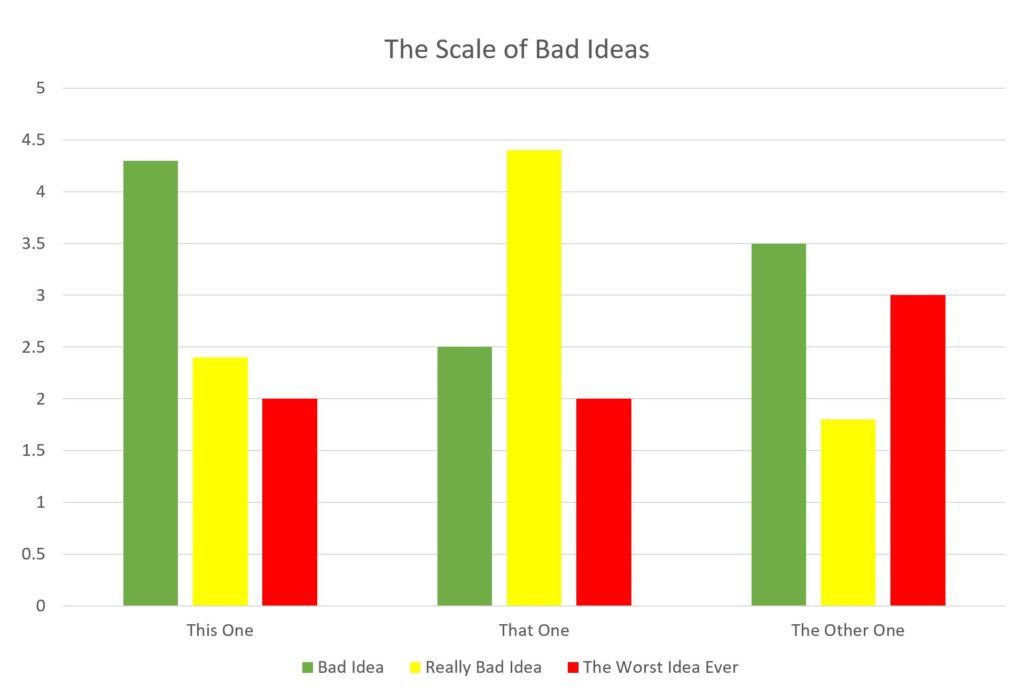 Recently a friend told me a funny story about one of his coworkers. His company hired someone to help them cut costs and reduce wasted time and materials. Essentially, his job was to make the company run more efficiently to increase profitability.
Recently a friend told me a funny story about one of his coworkers. His company hired someone to help them cut costs and reduce wasted time and materials. Essentially, his job was to make the company run more efficiently to increase profitability.
I was immediately interested in this story because I’m a big fan of efficiency. Or maybe just a big hater of wasted time and money. Either way, I know a bit about Lean Manufacturing Principles and Rapid Improvement Processes and was curious to know what techniques this person was using.
One of the processes he implemented required everyone who worked in their office to keep three colored cups at their workspaces. If everything was fine, they were supposed to display a green cup on the corner of their desk. If they had a non-urgent issue, they used a yellow cup, and the red cup was for when they needed their manager immediately.
By this point in the story I was already laughing, imagining a room full of adults being told they needed to use plastic drinkware to signal how well they were managing their work throughout the day.
I have no idea why the efficiency expert thought this was a good idea, or why he tried to implement it without getting buy-in from the staff first. If he had asked for feedback, he would have realized that nobody wanted to announce to their entire office when they had an issue they couldn’t resolve on their own. Plus, when people had questions, they just asked them, so it was solving a problem that didn’t exist.
But he didn’t get their feedback first, so everyone had to suffer through an office full of people sabotaging a process while feeling foolish and irritated.
Leading a team through a Rapid Improvement Process can have the complete opposite result. The surface-level benefit is that a work process that was slow, wasteful, or otherwise unpleasant is transformed for the better. But the real win is the positive impact in morale. When people are asked how their tasks could function more smoothly and work together as a team to create solutions, they feel valued, they are given some control over their work environment, and they bond during the process.
Tiny Decisions
 When you feel stuck in a bad job, it can seem like there’s no good solution. The obvious choices are often weighty ones that have a big impact on your life.
When you feel stuck in a bad job, it can seem like there’s no good solution. The obvious choices are often weighty ones that have a big impact on your life.
Quit? Try a different career? Move to a new city?
A new job can change your hours, commute, paycheck, the type of people you spend your day with – in addition to changing what you actually do at work. It can be overwhelming to think about all the ways your life will be altered – and tempting to do nothing to avoid the risk of making the wrong decision.
But doing nothing keeps you feeling stuck.
You don’t have to make all-or-nothing decisions.
Making one tiny decision at a time reduces pressure and could ultimately create a better outcome. Each tiny decision has low stakes, so it doesn’t matter if you don’t like the results of any particular choice. Whether you like the results or not, you’ve got the feedback you need to help you make the next tiny decision.
For example, a common tiny decision would be looking at job postings for a company you think you’d enjoy working for. If you like what you read, the next tiny decision might be looking up employee reviews on Glassdoor. Or finding people who’ve worked there and ask them about their experience.
If at any point you don’t like what you’ve learned, you can stop going down that path and try a completely different tiny decision. Like taking a free online course in a subject that interests you. If you dislike it – quit. Then try something else. Maybe you are still interested in the topic, but reading articles about it will be a better fit than taking an online course.
Here’s an analogy for the difference between making one giant decision or a series of tiny decisions: A giant decision is like leaping from the starting point of a race to the finish line. Tiny decisions are like taking one step at a time, choosing where to put each footstep. The first way gets you there faster, and if you are confident that you’ll like the result – great. But if you’re unsure, smaller steps let you change direction more easily, while still propelling you forward.
Be Wary of Charismatic Leaders at Work
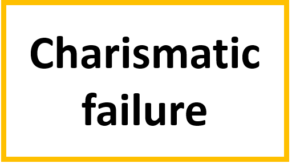 Throughout my career, there have been business leaders that inspired me to do my work with a deeper sense of purpose. I looked forward to their presentations at employee conferences and meetings because their speeches moved me. They clearly described their vision and how important it was for the team to achieve it. I left these events with fresh ideas for my projects and re-energized to complete them.
Throughout my career, there have been business leaders that inspired me to do my work with a deeper sense of purpose. I looked forward to their presentations at employee conferences and meetings because their speeches moved me. They clearly described their vision and how important it was for the team to achieve it. I left these events with fresh ideas for my projects and re-energized to complete them.
Time and time again, I was amazed at how smart and articulate they sounded. They described our mission in simple, easy to remember points, and gave us compelling reasons why we should care. They didn’t just make me think – they made me feel.
I give them credit for improving my strategies and plans because they made it easy for me to connect my work to the bigger goals of the organization. They strengthened my ability to get buy-in from other teams and leaders because I could show how my idea supported the top-down direction we were all supposed to follow.
So…great, right?
Not exactly.
Time and time again, these charismatic leaders disappointed me.
One leader dazzled me with his ability to get a room full of hundreds of people to enthusiastically commit to his vision. He got us to volunteer for additional work, and the vivid image of success that he described kept us focused for months. So it was confusing when after we delivered what he’d asked us to do, that nothing came of it. He didn’t take our front-line work and use his executive position to implement the goal we worked for.
I don’t know if his priorities had changed, if he lost interest in the goal, or if he simply lacked the ability to execute his vision. Plenty of people are very good at convincing others to support their ideas but lack the ability to push their projects to completion. Some of them have poor organization skills or get stuck when there are details to manage.
Unfortunately, this man was such a talented communicator that he got everyone excited about other things and moved on. The wasted time and potential was forgotten about.
Other charismatic leaders that failed me were more like empty vessels – appealing on the surface but not much inside. They think their only role is to imagine an outcome and inspire their followers to agree with them. Then they expect other people to figure everything else out because that kind of work is beneath them.
You can recognize this type of leader by their charming, magnetic personalities and the crowd of admirers that surround them. They will mesmerize employees with their strategic vision and big picture ideas but you won’t find them connected to the tactics, execution, or implementation.
 The danger of this type of leader is that when people rally around an outcome without understanding the plan to achieve it, bad things can happen. Loyalty to the leader and an emotional attachment to the end-goal can cause workers to take unethical or even illegal actions. They might think the ends justify the means. Or, their fierce loyalty may convince them that they aren’t doing anything wrong.
The danger of this type of leader is that when people rally around an outcome without understanding the plan to achieve it, bad things can happen. Loyalty to the leader and an emotional attachment to the end-goal can cause workers to take unethical or even illegal actions. They might think the ends justify the means. Or, their fierce loyalty may convince them that they aren’t doing anything wrong.
Charismatic leadership isn’t at fault for every corporate scandal. Volkswagen’s emission-cheating has been blamed on a fearful, authoritarian climate led by ex-CEO Martin Winterkorn – but that is a negative leadership style for a different blog post.
There are, however, charismatic leaders at all levels of organizations and it isn’t necessarily the CEO that employees blindly follow. Imagine a beloved executive getting staff excited to break a sales record without having a specific plan for achieving the goal. This happens all the time! Lower level managers might be tempted to cut corners, and what starts out as a gray area can turn into misuse of funds, which then becomes fraud. An entire department can be swept along in unethical or illegal activity.
This isn’t to say that every charismatic leader is bad. The website Make A Dent Leadership has an interesting article by Shelley Holmes about positive and negative aspects of charismatic leadership.
As for me, I can only think of one such leader that I would happily work for again. And…I can’t help but wonder…if someday this person will disappoint me, too.
Losing Perspective and Getting it Back
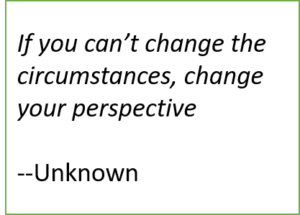 When we’re in the middle of challenging circumstances at work, it is easy to lose perspective.
When we’re in the middle of challenging circumstances at work, it is easy to lose perspective.
Under significant stress, we get tunnel vision. When our adrenal glands activate our flight or fight response, we narrow our focus to better deal with the threat at hand.
That’s great when we’re faced with immediate bodily harm. It’s not helpful when our bodies feel threatened every time we go to work.
When our attention is tightly focused on the stressful problem we’re experiencing, our ability to come up with solutions is reduced. Our brains draw on what we’ve already learned and experienced.
For example, maybe every time your previous manager yelled at you about a project you could calm them down by saying “Yes, I’ll get right to it”. Now your brain might be stuck on finding similar solutions, even if that approach doesn’t work at all with your current boss.
When you’re on high alert at work from constant stress, your natural flight or fight response is probably not going to help you deal with your manager, either. When they berate and demean you in front of your colleagues, you might feel an urge to throw a punch or to run out of the building. If you’re in control of your behavior, you’re most likely to freeze instead.
Many of us have felt stuck in a bad job. When we’re in a toxic workplace for a long time, our narrowed perspective can seem like our only reality. It might seem like there aren’t any good solutions. For every idea, we think of reasons why it won’t work. At times like this our best moments are when we’re distracted from thinking about our jobs.
How do we get perspective back once it’s lost?
The best advice I’ve learned is from the book Good to Great, by Jim Collins. In chapter four, Collins interviewed retired Vice Admiral Jim Stockdale, who survived nearly eight years as a prisoner of war in Vietnam. As he described his survival, Stockdale said, “You must never confuse faith that you will prevail in the end—which you can never afford to lose—with the discipline to confront the most brutal facts of your current reality, whatever they might be.”
Stockdale had an unwavering belief that he would get out of captivity without ignoring the horrific situation he was in. He not only survived, but went on to complete his military career, work in academia, and write a book.
Having faith that you will prevail over your current work circumstances can be challenging when you feel like you’re in survival mode. But think of Stockdale. He was literally in survival mode and prevailed.
Can you believe that you will go on to a better job and leave your miserable one behind? I have talked to over a hundred people who have done this. They were call center employees, pizza deliverers, paralegals, tech workers, correction officers, teachers, government employees, among others.
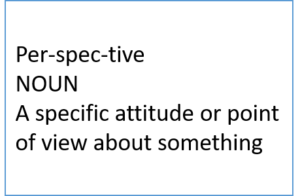 In my own career, I once felt trapped in a stressful job where I felt miserable most of the time. I believed that I could quit and find a different job, but I kept thinking of reasons not to. I worried that a new job would have worse benefits, or that I’d have a long commute, or that maybe the good parts of my job should outweigh the bad. I worried about the unknown.
In my own career, I once felt trapped in a stressful job where I felt miserable most of the time. I believed that I could quit and find a different job, but I kept thinking of reasons not to. I worried that a new job would have worse benefits, or that I’d have a long commute, or that maybe the good parts of my job should outweigh the bad. I worried about the unknown.
I had to convince myself to accept “the brutal facts of my current reality”. This meant accepting that there were positive parts of my job that I would miss: a project that I loved working on, many coworkers, and the salary and benefits. I also accepted that the job was wrong for me and I needed to leave it.
It took a long time for me to reach that point, but once I did, my perspective changed in an instant. At the time, I was home sick and didn’t have the energy to do much other than rest. I remember reclining on my couch, staring at the walls of my home, my sanctuary. I suddenly realized that a big reason why I stayed in my job was that it paid the mortgage and other bills.
In that moment, the trap was broken. I knew I could find other work that paid my living expenses, and that staying at my job wasn’t worth the negative impact it had on my wellbeing.
From that moment on, ideas for work came to me without trying. My mind opened to new options, I started writing again, and stopped worrying about paying the mortgage. I was confident in the many positive possibilities that my future could hold.
That was many years and mortgage payments ago. Since then I have been on a whirlwind of adventures in business and writing that I could not have imagined when I was clawing at solutions from inside a small, weary point of view.
Your Truth at Work
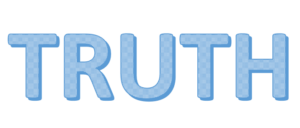 Making good decisions about our words and actions is part of having – and keeping – a job.
Making good decisions about our words and actions is part of having – and keeping – a job.
Whether working with customers, coworkers or employers, there’s a certain amount of self-editing that is required to get along with people and sufficiently meet the expectations of the people that pay you.
Choosing to not say exactly what you’re thinking is a good decision much of the time. Spewing unfiltered frustration damages relationships and your reputation.
At the other end of the spectrum, censoring yourself too much isn’t constructive either. Constantly saying what your manager wants to hear, when it isn’t what you believe, is exhausting. Going along with unethical decisions out of fear probably won’t erase your fear – but will add feelings of guilt. Holding back when you have an opportunity to contribute deprives both you and your organization of your ability to make an impact.
Modifying your behavior at work to the extent that you aren’t being true to yourself isn’t healthy. It’s stressful and depressing.
In some workplaces, there may be room for adjustment. Maybe you can say what’s important to you by approaching the topic in a way that reduces the risk of upsetting the people you work with. Dale Carnegie’s How to Win Friends and Influence People has great tips for situations like this. Taking a Dale Carnegie class is even better because you get to practice these skills.
If attempting to influence the organization doesn’t work and you’re currently not able to get a different job, you still have control over something: your truth. You might need to smile and nod for self-preservation, but you can acknowledge to yourself what you see, hear, and believe. Don’t let them steal your truth.
Your Ethics Can Get You Fired
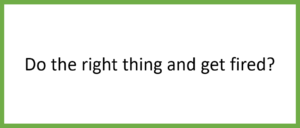 Maintaining a positive reputation at work means that sometimes you don’t speak up when something’s wrong. We all know the sayings, “don’t rock the boat” and “pick your battles.” When the issue goes beyond a gray area, or a slight bending of the rules of the employee handbook, you’re in a tough position.
Maintaining a positive reputation at work means that sometimes you don’t speak up when something’s wrong. We all know the sayings, “don’t rock the boat” and “pick your battles.” When the issue goes beyond a gray area, or a slight bending of the rules of the employee handbook, you’re in a tough position.
Several years ago I had a conversation with two mid-career lawyers about sexual harassment in the workplace. Both of them said that they would not tell their firm’s HR department or file a complaint if they were sexually harassed. They were sure that they would be fired in retaliation and black balled in the legal community, preventing them from getting a new job in their field.
I asked what they thought about the moral obligation to report issues like this. Because if nobody takes a stand against harassment and discrimination crimes, then they will keep happening, both to the current victim and others. The two lawyers didn’t hesitate to say they wouldn’t ruin their careers over it.
Over the years I’ve heard many variations of that conversation, but this stood out because the people were lawyers. They understand the law, their rights, and the process to seek justice if wrongfully terminated.
They also understood the personal consequences of reporting a crime and decided it isn’t worth it.
That’s bleak, and probably why we admire some whistleblowers who expose large scale crimes in their workplaces. Calling out illegal activity is a huge personal risk. Up until the point when whistleblowers are national heroes talked about in the media, they might be considered by their company’s peers and managers to be rats, tattlers, trouble makers, whiners, complainers, and ungrateful losers who should have been happy they had jobs in the first place.
They might be called all of those things and also be freshly unemployed. With a bad reputation that makes it difficult to be hired elsewhere.
Other people told me stories about being instructed by their managers to lie to investigators about crimes they witnessed. One man admitted that he lied under oath in trial court because his supervisor demanded that he do so or else lose his job.
Where do you draw the line between self-preservation and ethics?
I’m guessing most of us think we would make the ethical choice if we were in situations like that. But when people are actually in a position to lose their livelihoods, I doubt it is such an obvious decision.
I’m glad there are some people brave enough to sacrifice their personal wellbeing to stand up to workplace crimes.
Dealing with career disappointment
It is disappointing when you are not where you want to be in your career.
Maybe you thought by the time you were this age that you would be managing a department or earning a milestone salary.
Maybe you hop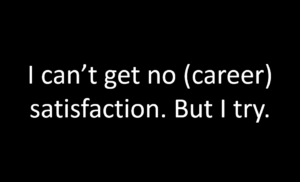 ed that after working this many years in your organization, that you would have been promoted by now.
ed that after working this many years in your organization, that you would have been promoted by now.
Maybe you expected that after the education and training you spent time and money on that you would enjoy your profession – but you don’t.
Or you’ve bounced from job to job and still don’t know what kind of job would make you happy.
I’ve met so many people that are frustrated with their careers for these reasons. The ones that are currently experiencing it often tell me that they feel defeated. They aren’t hopeful that they will ever find career satisfaction. It can be hard to believe it when you’re in the murky depths of a job disappointment, but I can tell you with certainty that is that there is still time for you.
You could still achieve the specific career goal that you have right now. There could be one small shift in your organization – a new manager or a new set of responsibilities that changes everything.
One man that I met about 10 years ago could not seem to get a break in his workplace. Let’s call him John. Year after year, John got not-so-great performance reviews and it seemed like he wasn’t going to move up the career ladder at his company – his career was stalled. Then out of the blue, John’s manager left the company and his new manager took an interest in him. He gave him recognition for his work that he hadn’t had before and praised him to other managers. That year, he finally got promoted and apparently continued to do well – very well: I ran into John last year and learned that he still works for the same company and is now an executive.
The small shift could come from something as simple as on-the-job training that you’re required to do.
A woman that I know, “Abby”, was content in her marketing job at a medium-sized company. Then her manager sent her to a training seminar to learn process improvement that would help the department run more effectively. Abby returned from the training lit up with passion for the techniques she learned.
I remember how excited she was when she talked about it. Her perspective of work went from “this job is ok” to “I know what I want to do with my life.” She kept finding ways to apply her new knowledge. At first, this was within the company she worked for. Then Abby sought out more training on her own, met people in the process improvement field, and through those connections got a full time job doing work that she loved.
If you haven’t found a meaningful job yet, you still can. In my research about people quitting jobs, I heard from dozens of people who were frustrated and exhausted with their work, yet found their way into career satisfaction. I spoke with people in their twenties and people in their late sixties – and all the decades in between. It’s not too late!
Many of the people I talked to could not have imagined their careers they have today back when they felt stuck and unhappy. There were no overnight changes. Instead, they followed their interests one step at a time and discovered opportunities along the way.
If you don’t know where to start, the most useful advice that I learned was to just learn more about whatever topic it is that you’re interested in and see where that leads. This might mean going to a seminar on whatever topic you are curious about. Or looking up information about it on the web or reading a book. Or volunteering for a cause that you care about. I’ve met full-time, paid care-givers at three different animal sanctuaries who started as casual volunteers. They are some of the happiest job-changers that I know.
Just take one step in the direction that interests you. It might lead you down the hallway of your current organization into a slightly different role, or into the dream job you never knew you wanted.
The Coffee Can Method of Getting a Dream Job
 Elizabeth Gilbert tells a story about a woman who dreamed of traveling the world, but was an impoverished single mother. The woman put a single dollar bill in a coffee can every day. As Gilbert tells it, the woman figured that they had so little money that one dollar didn’t make a difference. After many, many years, once the kids were grown, the woman finally had enough money saved to travel on a cargo ship that visited a number of different ports. She sustained her goal for two decades, and achieved it.
Elizabeth Gilbert tells a story about a woman who dreamed of traveling the world, but was an impoverished single mother. The woman put a single dollar bill in a coffee can every day. As Gilbert tells it, the woman figured that they had so little money that one dollar didn’t make a difference. After many, many years, once the kids were grown, the woman finally had enough money saved to travel on a cargo ship that visited a number of different ports. She sustained her goal for two decades, and achieved it.
I like this story. I especially like to remember it when it my goals seem distant and so difficult to achieve – specifically, publishing my self-help book for people that want to quit their jobs. It will happen, someday!
I also like to remember the coffee can story when I think about all of the people who are unhappy in their jobs, who feel stuck and have very real obstacles that make it difficult to quit. Their current jobs have health insurance for their families and the jobs they want do not. Their current jobs pay the rent and the daycare and the jobs they want would not cover those bills. Their current jobs are in the towns where they share custody of their children with their ex-spouses, and the jobs they want are in other parts of the country.
These are real blockers.
Still, getting unblocked is realistic. Saving money is fundamental in creating more choices for work. It can take a long time, and setbacks from unexpected expenses are frustrating. Yet it is possible.
There are other possibilities for getting unstuck, but they too can be long journeys. Doing a “side hustle” is the safest, most risk-adverse way that I know of to launch a new career. However it takes energy and motivation to spend time on a side business before going to a day job in the morning, and to work on it at night and on weekends. Sometimes it might seem worth it, and other times it might seem too exhausting.
I relate to this particular struggle. My drive to complete my book and shop it out to agents and publishers competes with my desire to have downtime and rest. In my case, choosing rest means that it will just take longer to complete my goal.
Hopefully not twenty years.
There are also ways to lessen the pain of the current job while working towards the dream career. Building confidence through honing skills and racking up “wins” by completing projects to the best of abilities helps. Fine-tuning resumes and LinkedIn profiles is a good idea for everyone. Expanding life outside of work to include hobbies, friends and fun is a great way to keep a miserable job from feeling like it is all-consuming.
We hear all the time that “life is short”. But time is relative, so life can also be long. It’s okay if you didn’t start putting money in the coffee can ten years ago. You can start now. You can start any time.
The job you want is there for you, even if it is far enough away that you can’t quite believe it yet.
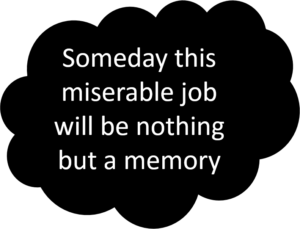
What Makeup Taught Me About Business
 Or an alternate title for this post: My Fake Beauty Blog.
Or an alternate title for this post: My Fake Beauty Blog.
I like makeup. I like learning about new products, talking about them, trying and buying.
I did a great job of limiting the buying part for a couple of years. Then I had a streak of steady paychecks from my consulting work and suddenly the pursuit of the perfect moisturizer seemed like a good hobby. I found it after a long quest through many mediocre creams, oils and balms. It is Peter Thomas Roth’s Mega Rich Intensive Anti-Aging Cellular Crème, which provides hydration for my dry-combination skin longer than any other I’ve tried.
After that I needed a new hobby – like finding the ideal matte plum lip color. Which as it turns out, is Benefit Cosmetic’s Lollitint Cheek & Lip Stain. You see how quickly this gets out of control?
Eventually I reigned it back in.
How?
I did my taxes and my checking account became as empty as my tube of Dior Addict Lipstick in Rock’n Roll 750 that I finally finished. And won’t repurchase because Dior is not worth the hype. The best thing about Dior products is feeling like a snob for using them. Like the time my friend and I got out our powder compacts at the same time and she said her Lancome was about the same as my Dior. I laughed so hard and she said I was a total snob, which I’m laughing about again as I relay it now, as if it was a compliment.
But really, Lancome powder is better than Dior’s. And Too Faced Primed & Poreless Pressed Powder is better than both of them, and is also better than the Cover FX that I’m using now because I wanted to try something new.
Anyway, once again my Sephora problem has vanished just as the dark circles under my eyes vanish when I use Urban Decay’s Naked Skin Color Correcting Fluid.
Now I’ll have to get my makeup at Ulta – ha ha.
Just kidding! Ulta is not completely low-end. Ulta stocks It Cosmetics and Sephora doesn’t.
I just wish Ulta’s emails and circulars weren’t so stark. I hate the incongruence of reading about It Cosmetics’ Your Skin But Better CC Cream with SPF 50+ on a flimsy flyer then spending $38 to buy a tube of it. Which, by the way, although it is branded as a CC Cream, it wears like an unbelievably smooth, full coverage foundation – with SPF 50!

image via www.ulta.com
I also wish Ulta would stop using their orange brand colors as their main color scheme. I would like them to use their trademark orange as an accent and stick with black for the website and marketing materials. Black is the ultimate base color for cosmetic brands because it is clean and sharp and lets the products be the focus.
And…put some highlights and dimension into their flat color blocks that they use for text in their ads. Layering is the CC cream of marketing graphics, people!
I digress. And while digressing, I might as well put on a mask, like GlamGlow’s SUPERMUD Clearing Treatment. It works much better at refining pores than Murad or Origin, which soften the skin but don’t do much else. Masks are a great way to multi-task when you’re working on the computer.
Anyway, I’ve learned a lot about business from being a cosmetics consumer.
This started years ago when I was shopping for a new perfume and didn’t know where to start. The salesperson was savvy and blunt and rolled his eyes when I picked up bottles that weren’t good matches for me. He held up a bottle of Dior’s Poison perfume and asked me who that perfume was meant for. Without even smelling it, I could see that the dark, sculpted bottle was designed to appeal to a more sophisticated woman who was older than I was at that time. The heavy, spicy scent confirmed it.
Now I automatically notice how cosmetic brands and retailers advertise themselves and their products, and think about how that matches to their target audience. That’s a useful marketing skill, but observing and discerning helps in many aspects of business.
Looking at a company’s brand and how I relate to that brand helps to evaluate work opportunities. Can I align with their mission and approach? Am I a good match with their “style” – can I “wear” their brand so that I’m representing their core values in my work?
Similarly, when individual projects are underway, I like to see if they are evolving in the same way the customers’ needs and expectations are evolving.
Another way that I’ve learned about business through makeup is by watching beauty bloggers review cosmetics and give tutorials on YouTube. Did you know that some of them are making big bucks by the ad revenue generated through viewers?
I’m not surprised. They offer value to their “customers” in very specific ways. Viewers can search for particular product reviews or tutorials – like how to color correct. Or, loyally follow their favorite personalities, like Grav3yardgirl, who has more than 6.8 million subscribers.
These bloggers talk to viewers like they’re casually telling friends their opinions of specific products and sharing their tips on techniques. They show appreciation to their viewers for watching. Some of them are get-to-the-point and others are more about entertainment. For a consumer, it is a no-pressure way to get product information before making a buying decision.
So that’s how my interest in makeup taught me to evaluate brands and apply those lessons to my own business projects. But that’s all I’ve got time for now. I’ve got to go wash off my face mask.


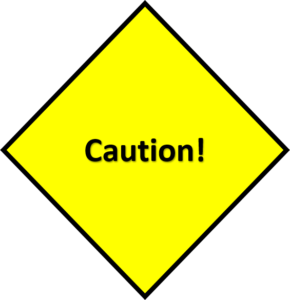
Recent Comments